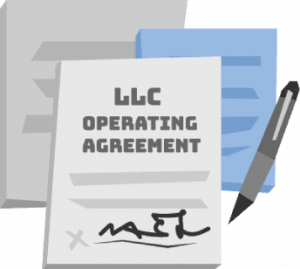How to Start a Limited Liability Company in West Virginia
In West Virginia, LLCs need to do three main things: name your business, choose a West Virginia registered agent, and file formation paperwork along with a $100 filing fee. But to remain in good standing and ensure your LLC’s legal bases are covered, you’ll need to take additional steps.
Below, we’ll take you through the basic requirements for starting an LLC in West Virginia, as well as what you should do to keep it running properly.

1. Name Your LLC
A limited liability company in West Virginia needs a name. The full set of naming rules is spelled out in in WV Code §31B-1-105. But at minimum, your LLC’s name must:
- Include an approved indicator like limited liability company, LLC, or Ltd. Co.
- Not include words like corporation, limited partnership, or other words that give the impression your LLC is a different type of entity.
- Be unique among business names in West Virginia.
If you already have a business name in mind, you can check to see if it’s available. If you want to secure a name before forming an LLC, file an Application for Reservation of Name with the Secretary of State’s Business and Licensing Division. After you pay a $15 filing fee, you can reserve the name for up to 120 days.
While the legal name of your West Virginia LLC is the one listed on your Articles of Organization, a DBA is any other name you choose to do business under. West Virginia refers to DBAs as trade names, but the terms are interchangeable.
It costs $25 to file for a DBA (doing business as) name in West Virginia.
Learn how to get a West Virginia DBA.
Create Your West Virginia LLC!


2. Get a Domain Name
A website domain that matches your business name will improve search engine visibility, driving more customers to your doorstep. Northwest makes it easy and can get you a domain instantly. In fact, all of our LLC customers get:
- One year of free domain registration.
- A customizable business website that’s kept safe with top-shelf SSL security.
- Up to 10 professional business email addresses.
- A local phone number with local area code.
At Northwest, we always go the extra mile. Have questions on a specific form or state filing? Our friendly Corporate Guides® have answers!

3. Designate a Registered Agent
Next, you’ll need to appoint a registered agent. A registered agent is a person or business authorized to accept legal mail and state documents on behalf of your LLC in West Virginia. You can act as your own West Virginia registered agent. Alternatively, you can use someone within your company, a friend outside your company, or a registered agent service.
Your registered agent must:
- Be a West Virginia resident or a business authorized to conduct business in West Virginia.
- Maintain a physical address in West Virginia during regular business hours (9 AM to 5 PM).
- Accept legal and state documents for your LLC and get them to you ASAP.
You can serve as your own registered agent as long as you’re fine knowing that your name and address will become part of the state’s public record. If you’re not down with that, hire a professional service like Northwest.
Yes, West Virginia law makes registered agents a requirement for businesses in the state.
Yes. You may change your registered agent in West Virginia by filing an Application to Appoint or Change Address, Agent, or Officers (form AAO) with the West Virginia Secretary of State, Business and Licensing Division. There’s a $15 filing fee.

4. Submit LLC Articles of Organization
To officially start an LLC in West Virginia, you’ll need to file the West Virginia Articles of Organization with the West Virginia Secretary of State’s Business and Licensing Division. Without the completed articles and a filling fee of $100 (+ $1 for online filings), you won’t have a formally registered LLC.
Here’s the information you’ll need to complete the state’s Articles of Organization.
- Company name. Must have an indicator like limited liability company, L.L.C, or LLC.
- LLC type. Indicate whether your LLC will be a standard LLC or a professional LLC.
- Principal office. This is usually where your LLC keeps its business records, and it can be located outside West Virginia.
- Mailing address (optional). This address can be a P.O. Box and outside of the state.
- Designated office. You must list a physical address located in West Virginia.
- Registered agent name and address. List who will accept service of process on behalf of your LLC.
- Business email. The state will send annual report reminders to this email address.
- Business website (optional). You may enter your website address or leave it blank.
- Number of WV businesses. Check yes if you have additional businesses in West Virginia or check decline to answer to skip.
- Organizer name and address. List the person filing your articles.
- Duration. If you want your LLC to exist indefinitely, select at-will. If your LLC will dissolve after a set period of time, check term and list the number of years your LLC will be around.
- Management. Indicate whether your LLC will be member-managed or manager-managed. You’ll also need to include the names and addresses of all members or managers.
- Member liability. LLCs are designed to limit liability. If for some reason you want one or more members to be liable for specific debts or obligations, you can select yes in this section.
- Purpose. Briefly describe your business activity (for example: real estate or computer repair). If your LLC plans to act as a litigation financier, you’ll need to attach the Application for Registration as a Litigation Financier.
- Scrap metal dealers. If your LLC is a scrap metal dealer, you’ll need to attach the Scrap Metal Dealer Registration Form.
- Other provisions (optional). You can attach extra information about your LLC or skip.
- Pages attached (optional). If you’re attaching additional pages, include the total number here.
- Effective date (optional). You can delay the start of your LLC for up to 90 days or skip this field.
- Veteran-owned organizations. Your filing fee could get waived if you qualify under WV Code §59-1-2a. You’ll need to attach a copy of your Veteran Affairs Form DD214.
- Contact person. If there’s a problem with your filing, the West Virginia Secretary of State will reach out to the person listed here.
Note: All of the information you put on your WV Articles of Organization will go on public record. When you hire Northwest to form your WV LLC, we’ll be your registered agent and you can use our address on your formation documents, which helps to keep yours private.
It costs $101 if you file your Articles of Organization online. If you file by email, fax, or in-person, the cost is $100. Those costs are for standard processing, which is 5 to 10 business days after receipt. If you want an expedited timeline, the cost is $25 for next-day service, $250 for two-hour service, and $500 for one-hour service.
The easiest and fastest way to file is online. You can also hand-deliver, mail, fax, or email your completed articles. An ePayment Authorization form must be filled out with the correct payment information for any credit card transactions.
Online filings:
WV One Stop Business Portal
For all mail, in-person or fax filings, choose one of the following offices:
Charleston Office
One-Stop Business Center
Charleston, WV 253111
Fax: (304) 558-8381
Clarksburg Office
North Central WV Business Center
200 West Main Street
Clarksburg, WV 26301
Fax: (304) 627-2243
Martinsburg Office
Eastern Panhandle Business Center
229 E. Martin Street
Martinsburg, WV 25401
Fax: (304) 260-4360
Email:
standard processing:
efilings@wvsos.gov
expedited processing:
CorpFilings@wvsos.gov
Any names, addresses, and phone numbers you list on your Articles of Organization will become part of the public record. This could leave you open to receiving more junk mail from marketers. To avoid that, hire us. We’ll list our business address on your formation paperwork so you can keep your personal life private.
Your WV LLC Is Formed. What's Next?

Write a West Virginia LLC Operating Agreement
An operating agreement is an internal document that describes the particulars of how your LLC will be run. It should cover membership interests, profit distribution, how voting works, and anything else about how your LLC operates. Even if you’re the only member of an LLC, you still need an operating agreement to do things like open a business bank account.
Operating agreements are complex legal documents. Check out our attorney-drafted West Virginia LLC operating agreement.
West Virginia law says LLC members “may” create an operating agreement, not that they’re legally required to do so. But if you decide not to draft one, you’ll be subject to West Virginia’s default LLC laws. Those laws may not work for your situation, so it’s best to make a comprehensive operating agreement and keep copies of it on hand.
In general, your agreement should cover topics like:
-
Initial investments
-
Profits, losses, and distributions
-
Voting rights, decision-making powers, and management
-
Transfer of membership interest
-
Dissolving the business
Note: Your operating agreement can include just about anything that doesn’t violate either West Virginia law or your Articles of Organization.
Yes, although you won’t use it to resolve arguments with yourself. Instead, you’ll need an operating agreement to open a business bank account and strengthen your LLC’s limited liability.

Get an EIN, Bank Account & Funding
A limited liability company in West Virginia won’t be able to do much without a bank account. Plus you’ll need a business bank account to preserve your limited liability by keeping business funds separate from any member’s personal funds. Before you open a business bank account, you should also get an EIN.
After your business bank account is formed, you must fund the LLC. Each member should make an initial contribution to pay for their membership interest, aka their percentage of LLC ownership.
You definitely will need an EIN if you’re hiring employees. But even if you’re a single-member LLC, getting an EIN is a more secure alternative to handing out your social security number. You’ll also need to present your EIN to open a bank account for your LLC.
You can hire us to obtain an EIN for you as part of your LLC formation package.

File Taxes & Reports
West Virginia LLCs should know about a few tax and reporting obligations. Here’s a rundown:
- Taxes: By default, your West Virginia LLC will be taxed as a pass-through entity. This means profits pass through the LLC and get distributed to the owners (members), who must then report the profits on their personal tax returns. LLC profits are also subject to the federal self-employment tax rate of 15.3%.
- Annual Reports: West Virginia requires you to submit your annual report between January 1 and July 1 of each year. The annual report helps keep the state updated on your LLC’s basic information, including how to get in touch with the business. Filing the annual report costs $26 (online) or $25 (paper). If you’d prefer not to deal with it, we can file your annual report for you.
Yes, you have to file an annual report in West Virginia. If you miss the deadline, there’s a $75 penalty.
If you keep your default tax status, your West Virginia LLC will get taxed as a pass-through entity, which means profits are distributed to members. The members must then report those profits on their personal tax paperwork. If you’d prefer, your LLC can file paperwork with the IRS to be taxed as an S-corp of C-corp.
Ready to Start an LLC in West Virginia?







